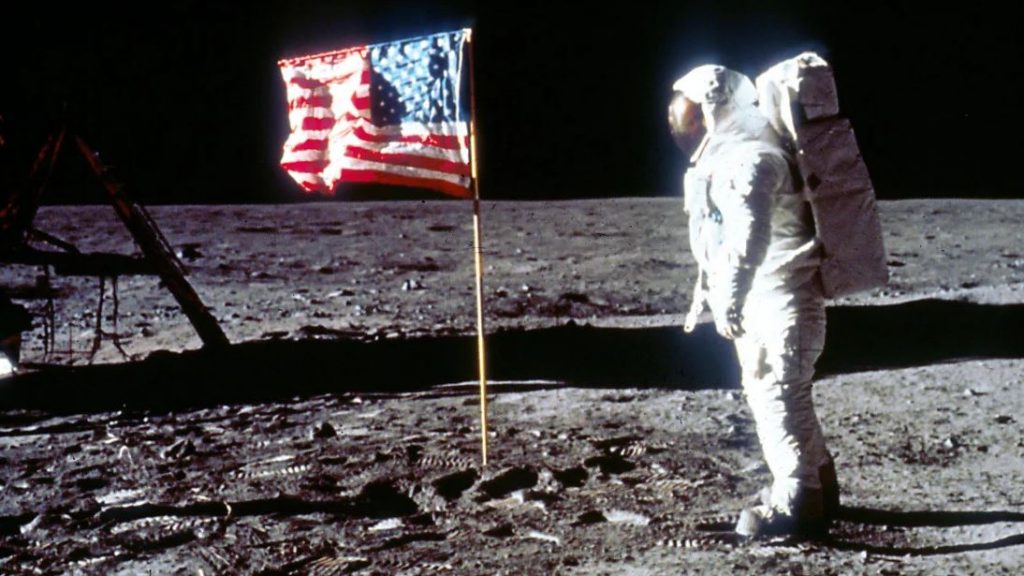Celebrating the Apollo 11 Moon Landing
For all you space nerds out there (yes, I’m looking at me), July 20th is etched in your brain. For those of you who aren’t space nerds, well… why not? But also, today is the 51st anniversary of the NASA moon landing. The day that Neil Armstrong and Buzz Aldrin first set foot on the moon. (And, let’s not forget Michael Collins. Orbiting the moon, alone. More than 230,000 miles from Earth in a space capsule roughly the size of a Dodge Caravan.)

For the almost 70% of you who are too young to have actually lived through this historic accomplishment, it might be difficult to fully appreciate the impact. So let me spell it out:
Humans left this planet and landed on the freakin’ moon.
It’s something that had never been done before and (after 1972) hasn’t been done since. And they did it by strapping themselves to the top of a 36-story-tall rocket filled with 500,000 gallons of kerosene and liquid oxygen. Oh, and navigating using an onboard computer with the processing power of a modern-day toaster.
The moon landing exemplifies a monumental accomplishment that has slowly, and sadly, diminished over time. It’s not that people don’t remember it. They do. But it’s safe to say that, in general, the average non-space geek doesn’t appreciate the sheer triumph that the moon landing represented.
I’m not sure why this is. Maybe the near-routine launch of government and private spacecraft has made space travel seem commonplace (spoiler alert: it’s not). Or maybe our regular diet of science fiction has normalized space travel to such an extent that the Apollo command module pales in comparison to its fictional counterparts.
Whatever the reason, it’s worthwhile every July 20th to take a moment to bask in the awesomeness of the moon landing. I don’t mean to take anything away from the unmanned activity occurring throughout our solar system (and beyond). But the 12 Apollo astronauts who walked on the moon — and the 12 more who orbited — are members of an elite group of humans who have actually left Earth’s gravity well. Their journey, and the collected effort of the 400,000 scientists, engineers, and technicians that made it possible, deserves more attention.
There’s talk of going back. I hope so. In the meantime, to celebrate the original moon landing, here’s an AI-enhanced, 24fps version of Armstrong’s final descent to the lunar surface (landing with only 15 seconds of fuel left). Until the next round of intrepid adventurers make their mark, this will have to do.
…

